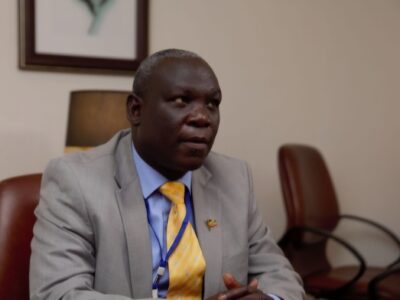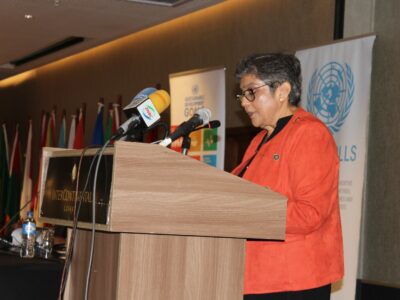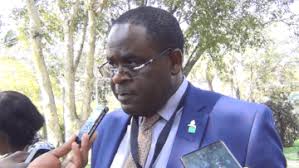The Southern African Development Community (SADC) Employment and Labour Sector has called on member states to take decisive steps in addressing labour market informality, which currently stands at 85.5 percent across Africa.
To tackle the issue, SADC proposed the integration of small and medium enterprises (SMEs) into the formal economy, recognizing their critical role in employment generation and economic transformation in the region.
According to a statement issued in Victoria Falls Town in Zimbabwe by Ministry of Labour and Social Security Principal Public Relations Officer, Mwaka Ndawa, the 85.5 percent statistic was attributed to the International Labour Organisation (ILO).
The call was made during the SADC Senior Officials Meeting, a preparatory session ahead of the Meeting of Ministers of Employment and Labour and Social Partners, set to officially open on March 27, 2024, at Elephant Hills Resort in Victoria Falls, Zimbabwe.
Chairperson of the SADC Employment and Labour Sector and Zimbabwe’s Permanent Secretary for Public Service, Labour, and Social Welfare, Simon Masanga, officially opened the meeting on Monday.
He highlighted the urgent need to develop strategies that address informality, as many workers in the informal sector lack social protection, fair wages, and adequate working conditions.
“Employment remains at the core of sustainable development and industrialization in the region, hence the need to transition from informality to formality,” Masanga said.
He further stressed the importance of equipping citizens with relevant skills to thrive in the 21st-century digital economy.
Speaking at the meeting, Zambia’s Ministry of Labour and Social Security Permanent Secretary, Zechariah Luhanga, outlined the country’s progress in addressing labour market challenges, including informality.

He noted that Zambia had taken significant steps in reviewing its National Employment Policy to create a more structured and inclusive labour market.
“Zambia is mitigating the impacts of climate change by integrating solar as a primary energy source, to reduce reliance on hydro energy, which affected productivity output on the labour market last year when the country experienced drought,” Luhanga said.
The meeting also saw participation from key social partners, including Zambia Congress of Trade Unions (ZCTU) President, Blake Mulala and Zambia Federation of Employers (ZFE) Executive Director, Harrington Chibanda.
The discussions at the SADC forum are expected to guide policies aimed at improving labour market conditions across the region and ensuring more workers benefit from formal employment structures.
WARNING! All rights reserved. This material, and other digital content on this website, may not be reproduced, published, broadcast, rewritten or redistributed in whole or in part without prior express permission from ZAMBIA MONITOR.












Comments